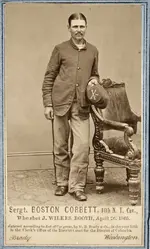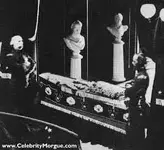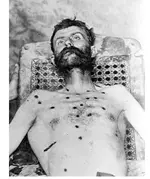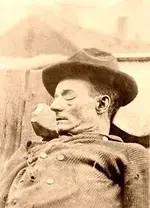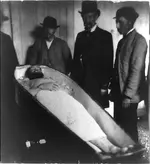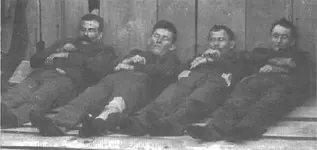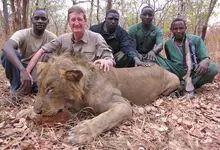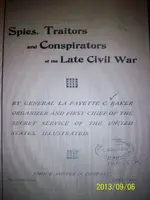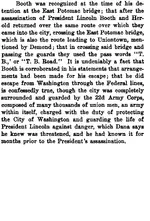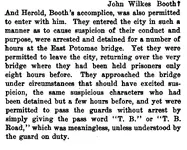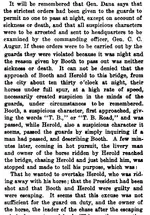Which brings me to this recollection that I would like to bring up to redirect this to Booth's escape:
If you realize that Baker was reporting to E. Stanton everything that he was spying on in the South, then his route of entry into the C.S.A. would have been reported to Stanton upon his return from his first excursion behind enemy lines. It has a striking familiarity about it if you recall the route that Booth supposedly took according to what was reported by the War department. (Stanton)
From Baker's report:
With the dawn of the next morning I renewed my journey
afoot
through the lower counties of Maryland, toward
Port Tobacco, traveling thirty-five miles that day, and reach
ing that town at night. Exhaustion prepared me for sound
and refreshing sleep. In the morning I gave
a negro a twentydollar
gold piece to row me across the river, when I was
safely in the Confederacy, below Dumfries. Tiie country
was wooded, and an unfrequented road, whose geneial direction
was toward Richmond, suggested the line of my advance
into the Old Dominion. I pursued my solitary Journey
through the desolate country, slaking thirst, excited by the
heat of the Southern sun, at brooks which at intervals crossed
my path. I could necessarily have no settled plan of future
movements, but trusted to providential indications of what,
under the circumstances, it would be prudent and politic to
do. With that entire composure of feeling and self-reliance
which attend a purpose, however daring, when once the
die is cast, to reach its final issue, I cast my bid over the
sparsely-settled country, with its old roads crossed with
paths, and studded with oaks, particularly careful to observe
the least sign of a human form within its horizon. Four miles
of distance lay between me and the banks of the Potomac,
when two Confederate soldiers made their appearance, too
near me to make an escape possible. I was taken prisoner
under an order to arrest as a spy any stranger passing that
way, and marched off toward camp, eight miles distant
When Baker (aka Mr. Munsen) was taken into custody by the Rebels it went like this:
I replied: "I
came from Washington, and am on my way to Richmond."
The letters were then handed to General Bonham by one
of the captors.
After reading, he said, "How dare you come inside of my lines !
Exliibiting proper surprise and indignation, I replied,
I
am a loyal and peaceful citizen of the United States, engaged
in an honorable and legitimate pursuit. I have business in
Richmond, and desire to go there." (this is almost word for word what was reported that Booth told the gaurds at the bridge)
I replied, "
I am from Washington, and going to Richmond, on private business. I have not intended to violate
any law, regulation, or military rule, of the Confederate army."
"When did you leave Washington?"
" Day before yesterday," I replied.
" Where did you cross the river ?"
"
In the vicinity of Port Tobacco."
'* How did you get across ?"
"
In a boat."
" Who brought you across 1"
'
'A negro."
" So you are
going to Richmond, are you ?"
" Yes, if I can get there ; but am willing to return If you
will permit me to do so."
Port tobacco residents:
George Atzerodt one of Booth's co-conspirators
Rose O'Neal Greenhow (1814-1864) was born here and became renowned as a Confederate spy operating in Washington, she was credited with ensuring their victory at the First Battle of Bull Run in July 1861. daughter Adele Cutts in 1856 married the widower Stephen Douglas, senator from Illinois.
After shooting President Abraham Lincoln at Ford's Theatre April 14, 1865, John Wilkes Booth fled across the Potomac River into Maryland, then headed toward Virginia.
The pursuing Army chasing him were directed through Port Tobacco on their way to the Garrett Farm where Booth (Mr. Boyd) and Herald were waiting for them to find already locked in the barn.....

L.C. Baker




 ? outlaw, thief, murderer, laid out by the proud men that want you to think they got him. published in the press for all to see.
? outlaw, thief, murderer, laid out by the proud men that want you to think they got him. published in the press for all to see. Most famous man in the history of the 1800's, Tracked down by the
Most famous man in the history of the 1800's, Tracked down by the 